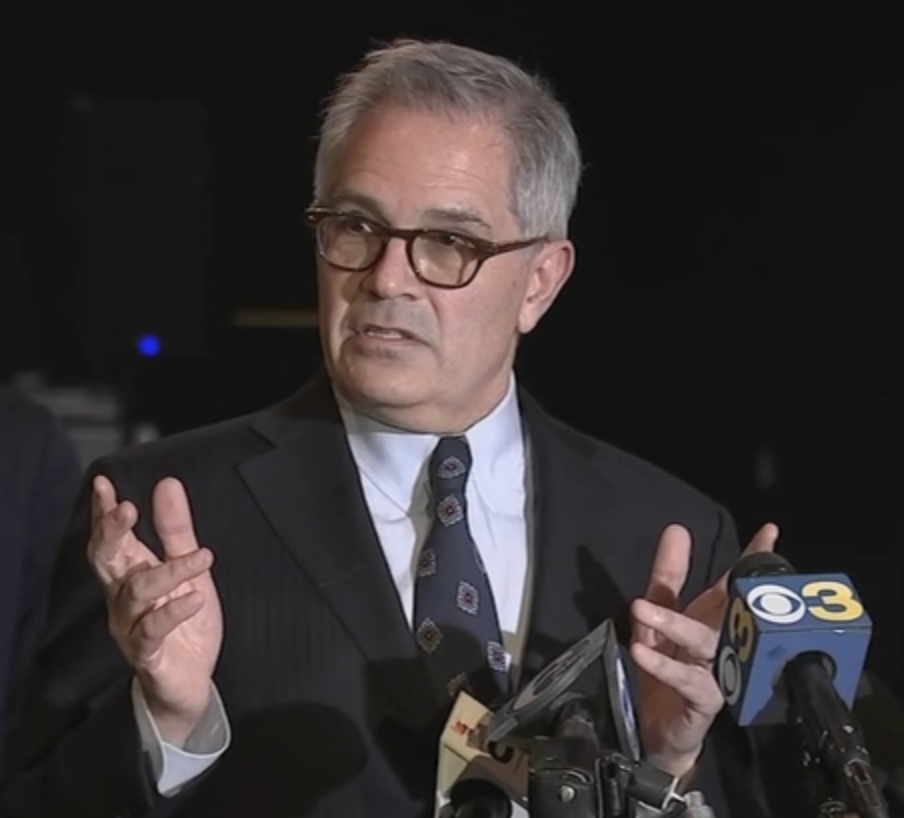Years of complaints about his embrace of progressive prosecution policies have led to Philadelphia District Attorney Larry Krasner losing his authority over crimes committed on the region’s mass transit system.
On Friday, the Commonwealth Court released a 4-3 ruling rejecting Krasner’s lawsuit over Act 40, the law that gave the Attorney General’s Office the ability to name a special prosecutor for alleged crimes committed on the Southeastern Pennsylvania Transportation Authority (SEPTA) system.
Michael Untermeyer was named special prosecutor by state Attorney General Michelle Henry on Friday.
Act 40 supporters said the law was needed because of rising crime on the SEPTA system and plunging ridership statistics. Gov. Josh Shapiro signed it last year after bipartisan approval in the legislature.
Krasner fought Act 40, arguing it violated the State constitution by removing his ability to prosecute crimes.
“This law is extremely selective. Only in Philadelphia does this law say that an unelected prosecutor can take away your cases and take away your power,” a defiant Krasner said after the Commonwealth Court’s ruling.
State Rep. Craig Williams (R-Delaware) told DVJournal the decision is a win for Philadelphia.
“No reasonable person who prefers a safer city could object to more prosecutors bringing more resources to bear,” he said.
Williams was one of the impeachment managers when the House impeached Krasner in 2022. The Senate trial has been delayed pending a decision by the state Supreme Court.
Krasner plans to appeal to the state Supreme Court, but Commonwealth Court justices said Krasner didn’t “cite any constitutional provision” to make his case. They added that the state constitution gave the attorney general the power to prosecute crimes in “any county criminal court.” That included “concurrent prosecutorial jurisdiction with the district attorney.”
When announcing his legal challenge earlier this year, Krasner said Act 40 is an effort “to erase the votes of 155,102 people who struggled through the inconvenience of voting.”
Krasner long claimed Act 40 unfairly targeted his office and the city of Philadelphia. “This has nothing to do with public safety. It never did. This has to do with the disenfranchisement of Philadelphia voters by devaluing their vote,” he said Friday.
He received support from Commonwealth Court Judge Matthew Wolf.
In his dissent, Wolf questioned how far Act 40 went and whether it covered crime happening on SEPTA property or “within a certain distance” of it. He also suggested the District Attorney’s Office could lose the ability to prosecute “crime in general” to the special prosecutor.
The majority of judges felt otherwise.
They wrote that Act 40 is “clearly directed at SEPTA” and meant to protect SEPTA employees and riders. They also noted that state law said that SEPTA was not considered part of a city or county but “an agency and instrumentality” of the commonwealth. The legislature created the transit agency in 1963.
Judges worried SEPTA’s crime rate could negatively affect “the statewide economy” along with law enforcement and the safety of Pennsylvanians and tourists. Philadelphia will host six World Cup games in 2026.
Krasner has no plans to back away from his claim that Act 40 persecutes against him.
“This has been about politics,” he said. “This has been about politics of fear. It has been about racist politics and that is what’s going on.”
Senate Majority Leader Joe Pittman (R-Indiana County) dismissed Krasner’s claims.
“Providing for the safety and security of communities across the commonwealth is paramount to fulfilling our constitutional obligation as elected officials,” he said. “We are a state of laws, which must be upheld in order to foster greater safety, stability and growth for all residents.”
Untermeyer has a long legal history in the Keystone State. He served as a senior deputy attorney general and assistant district attorney. Untermeyer ran for Philadelphia sheriff last year, losing to incumbent Sheriff Rochelle Bilal in the Democratic primary. He previously ran against Krasner in the 2017 Democratic primary for DA.

